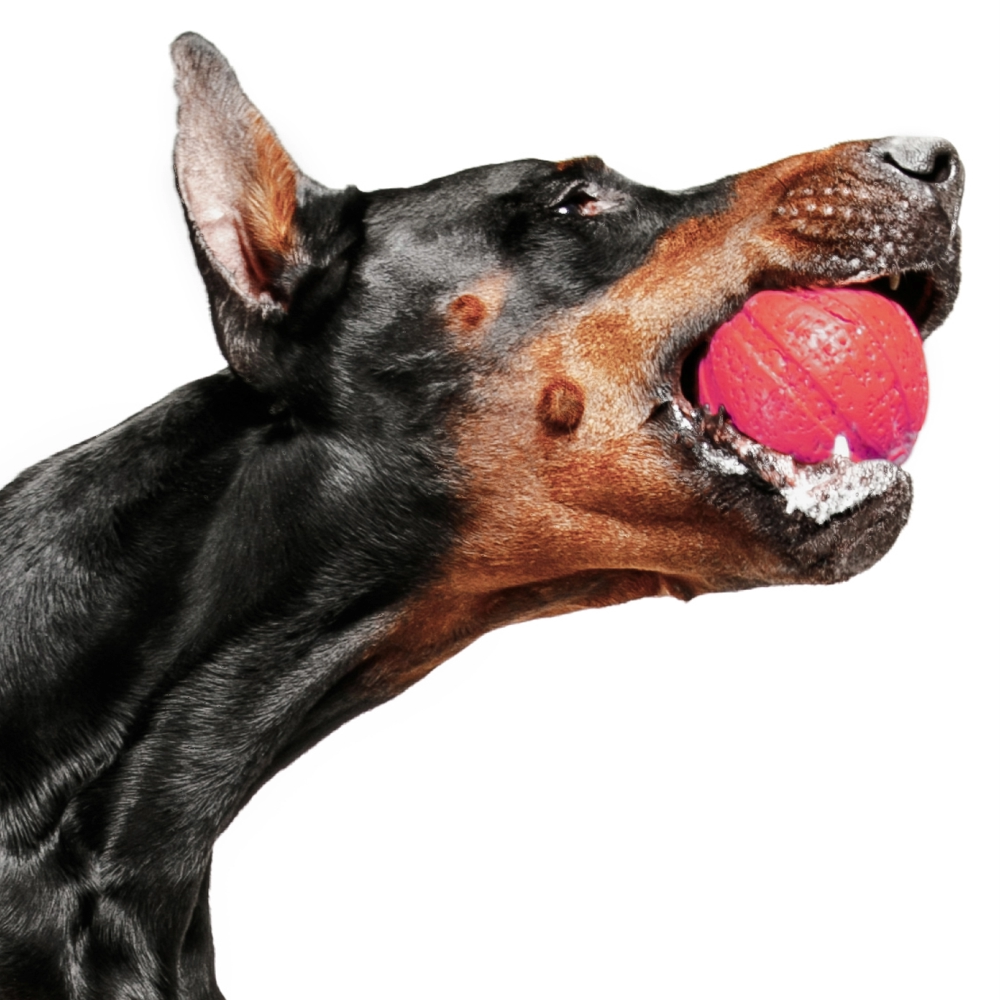Omega-3 fatty acids are a family of important fats for your dog’s diet. The three main types are ALA, EPA, and DHA.
Omega 3 and 6:
After protein, fats are the second most important part of your dog’s diet. Considering that nearly half the calories your dog would be consuming in the wild come from fats, it is truly surprising how underrepresented these essential components are in most dog’s daily diets.
Protein, fat and carbohydrates are the three sources of energy your dog utilizes. They each have their benefits which we will explore in greater depth:
Proteins are a source of calories, which means they provide the body with energy, giving your dog the boost he or she needs to be active, playful, and loving. In addition to being a source of energy, proteins are also an essential building block for almost every body structure there is. Proteins provide your dog’s body with the materials needed to build muscle, soft tissue, skin, hair, nails, blood cells, and even the enzymes that are in control of basically every body process.
Fats, much like protein, are also a fantastic source of energy. But in addition to storing fat for energy, lipids (which is what fat is) are used by the body as chemical messengers, they help the body absorb vitamins such as vitamin A, vitamin D, vitamin E, and vitamin K, they control hormones, regulate inflammation, and form the membranes of all cells.
Lastly, carbohydrates are purely a source of energy, providing little to no other benefits, which is why they make up such a small percentage of most dog’s diets.
Understanding the roles that proteins, carbohydrates, and especially fats play in your dog’s body is essential to guaranteeing that he or she is leading as happy and healthy a life as possible!

Types of fats:
There are several different types of fats to be considered when trying to give your dog the most nutritious and beneficial diet. The dietary fats that we most often refer to are called triglycerides. Triglycerides can either be saturated or unsaturated. Saturated fats are those that are solid at room temperature (like butter), while unsaturated fats are often liquids at room temperature.
To ensure your dog is receiving all the nutrients it needs to be healthy, a mixture of these two fats is absolutely essential.
We will be focusing on two specific unsaturated fats: Omega-3 and Omega-6.
Omega-6 and omega-3 both control the body’s hormones, though they control hormones with very distinct functions. Omega-6 is in charge of producing the hormone that is in charge of increasing inflammation, which is not always a bad thing as inflammation is an important part of the immune response. Omega-6 also plays a role in cell growth and blood clotting.
Omega-3, on the other hand, has somewhat the opposite effect of omega-6, also affecting the immune system but in an antagonistic manner to the hormones produced by the omega-6. This is why it is essential that your dog’s diet include both of these fatty acids.
Most dog foods are produced to contain great amounts of Omega-6, while containing much less omega-3, which can potentially lead to chronic inflammation, as both fatty acids play a major role in the body’s inflammatory responses.
Some other incredible benefits of omega-3 and omega-6 supplementation are as follow:
- Promote healthy skin and coat, while also reducing excessive shedding.
- Boost the immune systems of pets of all ages and sizes.
- Decrease inflammation, especially in pets on pain medication
- Inflammation is seen in many diseases such as kidney disease, brain disease, arthritis, and heart disease. Omega-3 reduces the autoimmune response and can be a great way to reduce inflammation and alleviate pain. These fatty acids also can promote circulation.
Vitamin E:
Vitamin E is a nutrient that is fat-soluble. It is essential for various body functions, such as the development of muscle tissue, the healthy of the circulatory system, as well as the health of the immune system. Vitamin E also acts as an antioxidant, meaning that it protects cells from any damage free radicals may cause.
Vitamin E also keeps Polyunsaturated Fatty Acids, such as Omega-6 and Omega-3, from oxidizing. For this reason, when increasing your dog’s intake of fatty acids, it is also important to increase his or her intake of vitamin E accordingly.
Some other great benefits of vitamin E are:
- Vitamin E supports coat and skin health, reducing flakiness and promoting shine and glossiness.
- It supports the immune system.
- It can improve eyesight.
- Vitamin E promotes healthy muscular function.
It protects the cardiovascular health of your dog.
Here at Coco and Luna, parents and their furry children are always our priority! This is why we have worked so hard to create the ultimate Omega 3-6-9 Supplement. Our formula is made from natural and fresh ingredients, ensuring the utmost quality for our clients!
Our supplement contains essential fatty acids such as Omega 3-6-9, which are responsible for various body responses in your dog. These delicious tablets also contain vitamin E, which is an antioxidant that promotes various benefits and can be given to your pet as a tasty, chewable treat.
Our fantastic formula is a great way to get your dog looking and feeling great again! It promotes coat and skin health while also increasing just all-around wellbeing!
Our chewable tablet is safe because it is a natural pharmaceutical grade anti-inflammatory formula. These delicious tablets are small and easy to chew. They also taste great! Making giving them to picky eaters much less of a hassle.
Our active ingredients –Vitamin E, Omega-3, Omega-6, and Omega-9– come together to make an effective and powerful way to protect your pet from a huge range of maladies.


